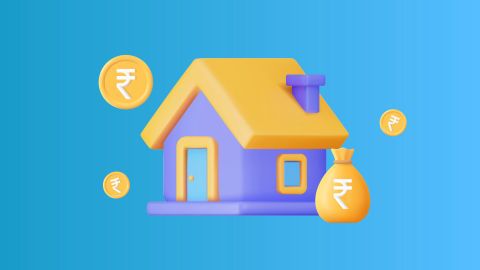Paying GHMC property tax is a fundamental responsibility for property owners in Hyderabad, overseen by the Greater Hyderabad Municipal Corporation (GHMC). This tax applies to all residential, commercial, and vacant properties within GHMC’s jurisdiction and is crucial for funding the city’s infrastructure development and public services. The GHMC property tax is calculated based on factors such as the property’s plinth area (built-up area), usage (residential or commercial), and the location’s rental value. For residential properties, the tax is determined using the Annual Rental Value (ARV), which is based on the market rent or estimated rent of the property. Commercial properties are taxed at higher rates due to their revenue-generating potential. Property owners can conveniently complete their GHMC property tax payment online through the GHMC website, designated citizen service centers, or mobile apps, with options for annual or half-yearly payments. Timely GHMC property tax payment is essential, as late payments can attract penalties and interest, typically ranging from 2% to 24% per annum. Understanding the GHMC property tax system ensures compliance with local regulations and contributes to the city’s growth and maintenance.
What is GHMC Property Tax?
GHMC Property Tax refers to the property tax levied by the Greater Hyderabad Municipal Corporation (GHMC) on properties within its jurisdiction. It is an annual tax imposed on all property owners in Hyderabad to fund civic amenities, infrastructure development, and maintenance of services like sanitation, roads, and street lighting.
GHMC property tax rates
Monthly rental value |
General tax |
Conservancy, lighting, drainage tax |
Total rate |
Up to Rs. 50 |
Exempt |
Exempt |
Exempt |
Rs. 51 - Rs. 100 |
2% |
15% |
17% |
Rs. 101 - Rs. 200 |
4% |
15% |
19% |
Rs. 201 - Rs. 300 |
7% |
15% |
22% |
Rs. 300 and above |
15% |
15% |
30% |
Required documents for Hyderabad property tax
To ensure a smooth property tax payment process in Hyderabad, ensure you have the following documents ready:
- Property ownership proof: A copy of the property title deed or sale agreement to verify ownership.
- Aadhaar card: A valid Aadhaar card for identity verification of the property owner.
- Property address details: Complete and accurate address of the property for assessment purposes.
- Previous property tax receipts: Copies of last year’s property tax receipts, if applicable.
- Property measurement details: Documentation specifying the land or building measurements for property tax calculations.
- PAN card: A valid PAN card for tax assessment and compliance.
- Occupancy certificate: Necessary for newly constructed properties or those recently renovated.
- Recent utility bills: Copies of electricity or water bills to confirm residency or property usage.
Keeping your property documents organised not only simplifies tax payments but also prepares you to unlock your property's financial potential. Consider a loan against property from Bajaj Finance, a secured loan that lets you access funds without losing ownership of your property. By using your property as collateral, you can unlock access to large funds of up to Rs. 10.50 crore—it is a smart way to manage your finances with ease! Get funds within 72 hours* of approval*.
GHMC house tax calculation
Before we explain this in further detail, let us start by telling you that property tax is different for residential and commercial spaces in Hyderabad. However, the final property tax to be paid on both the property types depends on the gross annual rental value. The final property tax also depends on other factors, such as the type of the property, the total area of the property, total built-up area, location, etc.
Why just manage your property when you can make it work for you? If you are looking to meet long-term financial goals or need funds for an emergency, why not consider a loan against property? By using the value of your property, you can get access to a large amount of money with easy repayment options and competitive interest rates. It’s a simple way to unlock your property’s potential. Get a loan of up to Rs. 10.50 crore with the option of interest-only EMIs during the initial tenure.
GHMC property tax calculated on residential properties
To calculate the total payable GHMC tax on your residential property, follow these simple steps:
- Measure the total built-up area on your property. The total built-up area includes the area of all covered spaces, such as garages and balconies. So, do not forget to include these while calculating the total built-up area.
Once you know your total built-up area, the next thing you must find out is the average rent-per-square-foot in the area in which your property is located. This will give you your monthly rental value per square foot (MRV).
Once you have these figures, calculate the GHMC residential property tax using the formula:
GHMC annual residential property tax = Gross Annual Rental Value (GARV) x (17% – 30%) Slab rate to be determined based on MRV as fixed by GHMC – 10% depreciation] + 8 % library cess
If you do not know how to calculate the gross annual rental value (GARV), use this formula:
GARV = Plinth area x Monthly rental value in Rs./ sq ft x 12
GHMC property tax calculated on commercial properties
To calculate the final tax on your commercial property, follow these steps:
- Measure the total built-up area or the plinth area for your commercial property.
- Every year, the GHMC releases notifications, which state fixed monthly rent per square foot for different areas. Refer to these notifications to figure out the MRV for your property.
Once you have these values, use this formula to calculate your final GHMC commercial property tax.
Annual commercial property tax = 3.5 x plinth area in sq.ft. x monthly rental value in Rs/ sq.ft.
A few things to keep in mind while calculating property tax for commercial spaces in Hyderabad.
- For hospitals and educational institutions, the GHMC keeps the monthly rental value at the lowest. For educational institutions, the MRV per square foot is Rs. 8 and for hospitals, it is Rs. 9.50.
- ATMs and cellular towers draw high MRVs. The monthly rental value per square foot is Rs. 70 for ATMs and Rs. 50 for hoardings and cellular towers.
Key Features of GHMC Property Tax:
- Applicable properties: The tax applies to all residential, commercial, and vacant properties under GHMC's area.
- Assessment: The property tax is calculated based on factors such as the plinth area (built-up area), the property's usage (residential or commercial), and the location's rental value.
- Tax calculation: The tax is generally calculated using a formula based on the Annual Rental Value (ARV) of the property. For residential properties, the ARV is determined based on the market rent or estimated rent of the property. Commercial properties are taxed at higher rates due to their revenue-generating potential.
- Payment: Property owners can pay their GHMC property tax online via the GHMC website, at designated citizen service centers, or through mobile apps. There are options for annual or half-yearly payments.
- Penalties for non-payment: Late payment of property taxes can attract penalties and interest, usually ranging from 2% to 24% per annum.
- Exemptions: Certain properties may be exempt from GHMC property tax, including places of worship, government-owned properties, and properties owned by charitable organizations, subject to specific conditions.
The GHMC property tax is vital for funding the city's infrastructure development and maintaining public services in the Hyderabad metropolitan area.
GHMC property tax payment
In Hyderabad, property owners are required to pay house tax to the Greater Hyderabad Municipal Corporation. Though most Hyderabad residents prefer to pay their property taxes at the office, the civic body also offers an option for online. GHMC calculates the property tax based on the type of occupancy and the total area of the property. The corporation also enforces strict rules regarding property tax payments — a 2% penalty is levied on those who make late GHMC property tax payments past the deadline. This online payment facility makes it easier for property owners to stay compliant and avoid penalties.
How to pay GHMC property tax Online?
- To start with, visit GHMC's official website
- Once there, select the 'Property Tax Payment' option on the 'Menu'
- You will be asked to enter your PTI number. Enter the number and click on submit
- Once you have entered your PTI number, you will be taken to the next page, where you will be asked to provide other details, such as total taxable amount, detail of arrears, etc. Make sure all the information provided is correct
- Select your payment method. The options available on the website include credit cards, debit cards, and net banking. Select your desired option and make the payment
GHMC tax exemptions
Though all non-agricultural lands and buildings are taxable in Hyderabad, sometimes, certain types of properties can attract some kind of concessions or tax exemptions and some types of properties are wholly exempt from taxation in the city.
For instance, properties owned by current or retired military servicemen are wholly exempt from GHMC tax. Similarly, buildings with thetotal rental value not exceeding Rs. 600 per year are exempt from taxation in the city. Similarly, places of worship do not attract any form of GHMC tax. Further, government-recognized educational institutions up to class 10th are also completely exempt from taxation in Hyderabad.
Rebates and penalties
- As mentioned before, late payment of taxes draws a late payment fee of 2% on the bill value.
- In Hyderabad, owners who practise rainwater harvesting and use solar power for power backup get tax incentives.
Pro Tip: While managing property tax refunds or cancellations, consider leveraging your property to secure a loan. A loan against property could provide immediate funds to cover your financial needs as you wait for your refund or resolve any tax matters. With attractive interest rates and flexible repayment options, this loan is an excellent way to tap into your property’s financial potential. With Bajaj Finserv Loan Against Property, you can get access to large funds with the flexibility to part-prepay your Flexi Loan at no extra cost.
Know how to apply for property tax in other cities
Cities |
Links |
Property Tax in Delhi |
|
Property Tax in Bangalore |
|
Property Tax in Faridabad |
|
Property Tax in Ahmedabad |
|
South Delhi Property Tax |
|
North Delhi Property Tax |
|
Haryana Property Tax |
|
Kolkata Property Tax |
|
Gurgaon Property Tax |
How to Generate PTIN to Pay Tax?
Property Tax Identification Number (PTIN) is a unique identification number assigned to your property. It serves as a legal record for your property and is necessary when you're applying for a loan against property, as banks or lenders often require proof of tax payment and property ownership.
To generate a PTIN for your property, you will need to submit your property documents, including the registered sale deed, and an application Municipal Corporation office. After reviewing your application, the office will issue a unique PTIN for your property.
Unlock your financial potential with a loan against property in Hyderabad
Now that you are familiar with property tax regulations in Hyderabad, it’s time to explore financial solutions tailored to your needs. Whether you want to expand your business, fund higher education, or manage medical expenses, a Bajaj Finserv Loan Against Property helps you leverage the value of your property. With competitive interest rates, flexible repayment options, swift approval, and simple eligibility criteria, accessing the funds you need has never been easier. Check your eligibility for a loan against property in seconds!
Why choose Bajaj Finserv Loan Against Property?
Gain access to funds without selling your valuable assets. With Bajaj Finserv, you can enjoy a seamless borrowing experience with several benefits:
- Attractive interest rates: Benefit from competitive rates for affordable borrowing.
- Quick approval: Get your loan approved and disbursed swiftly to address your financial needs promptly.
- Simple eligibility criteria: Access hassle-free loan processing with minimal documentation.
- Flexible repayment plans: Choose repayment options that suit your financial situation.
Whether it is achieving personal goals or meeting urgent financial needs, Bajaj Finance is here to support you every step of the way. Whether it is expanding your business or funding your child's education, our loan against property can help without parting with your asset.
Frequently asked questions
If you have forgotten your Property Tax Identification Number (PTIN), you need not worry. You can retrieve it either by logging onto the GHMC website and entering the necessary property details, or by contacting the GHMC directly with proof of ownership details.
You can find your GHMC Tax Payment details on the official GHMC website. On the site, under the category of 'Services', you will find an option for 'Property Tax'. Click on it and then enter your PTIN to retrieve your property tax information.
In Hyderabad, the property tax is determined based on the Annual Rental Value (ARV) system. It involves factors like the size and location of the property, its use (residential or commercial), and the type of construction. It's calculated by the GHMC and is subject to change based on revisions in property tax rate.
If your GHMC house tax payment is delayed, you will be charged a penalty on the outstanding amount. The penalty can significantly increase over time if the delay continues. In severe cases of persistent non-payment, the GHMC has the right to initiate legal proceedings against the property owner.
After you have made your GHMC tax payment, you should receive a confirmation which is also available on the official GHMC website. By clicking on 'Property Tax' under 'Services', and entering your PTIN, you should be able to view and download your tax payment confirmation. Remember to save and print this document for your records, as it is often required when applying for loans against property.
For delayed payment of GHMC property tax, a penalty of 2% per month is charged on the outstanding amount. The penalty continues to accumulate every month until the payment is made in full. This interest-based penalty can significantly increase the total amount owed if the tax remains unpaid for an extended period. Therefore, it is crucial to pay property taxes within the due dates to avoid financial burdens. GHMC encourages property owners to pay on time through both online and offline methods to prevent the accrual of penalties.
The GHMC property tax is typically paid either annually or in two installments. The due date for the first half-year payment is before July 31, while the second half-year payment is due before October 15. These deadlines ensure that property owners pay their taxes on time, and failing to meet them could result in penalties. GHMC provides both online and offline modes for payment to facilitate timely submissions. Property owners should mark these dates to avoid interest penalties on late payments and stay in compliance with municipal regulations.
Yes, GHMC house tax can be paid offline at several authorized locations. Property owners can visit GHMC Citizen Service Centers, E-Seva Centers, or select State Bank of India (SBI) branches to make their payments in person. These offline methods provide convenient options for individuals who prefer not to pay online. To ensure a smooth process, it’s important to bring the Property Tax Identification Number (PTIN) during the payment. Although offline payment is available, property owners are encouraged to use online methods for quicker transactions and ease of record-keeping.








